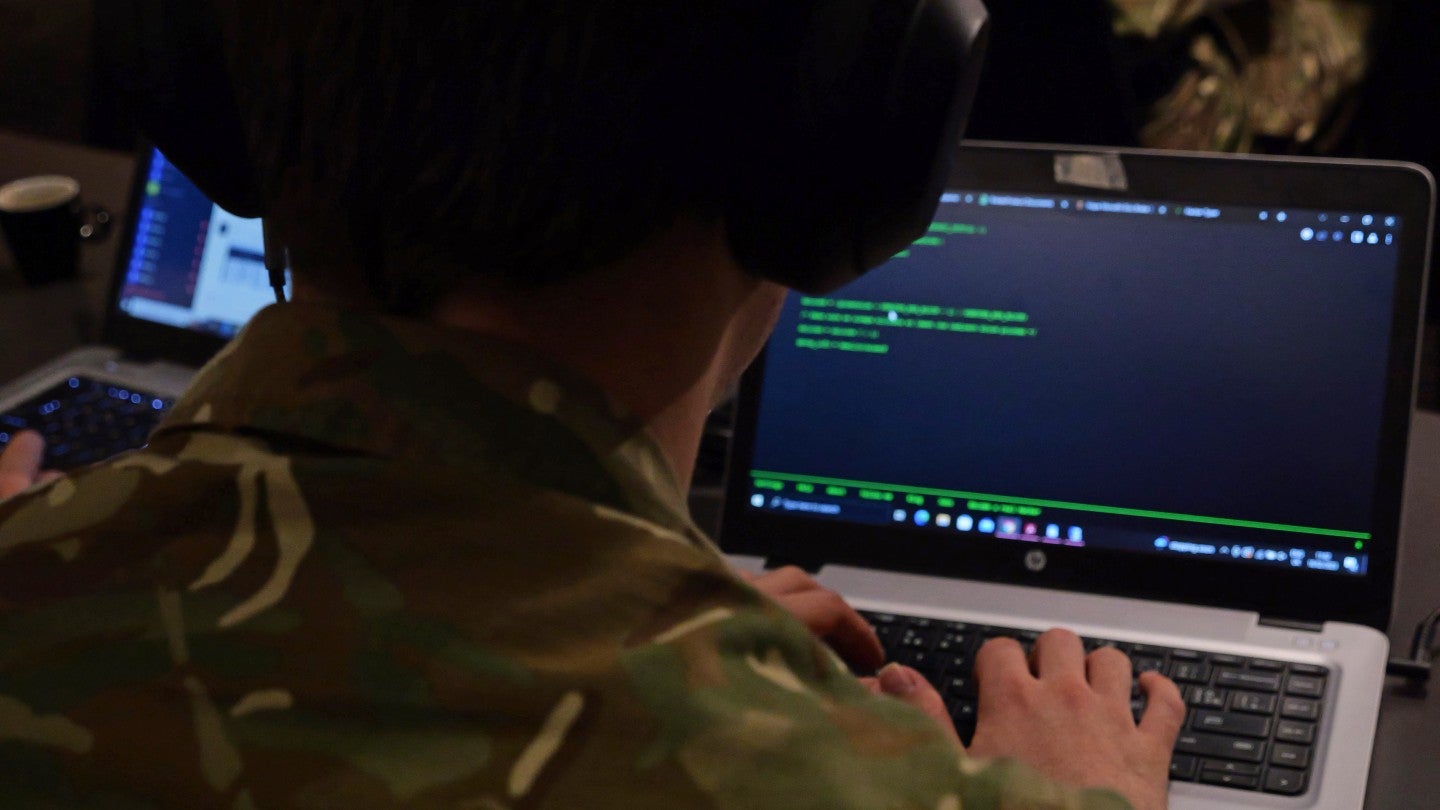
The British Army-organised cyber warfare exercise, titled Defence Cyber Marvel 2 (DCM2), has successfully culminated in Tallinn, Estonia.
The exercise involved the participation of over 750 cyber specialists, military personnel, government agencies, and industry partners from 11 countries, including Ukraine, the UK, India, Japan, Italy, Ghana, the US, Kenya, and Oman.

Discover B2B Marketing That Performs
Combine business intelligence and editorial excellence to reach engaged professionals across 36 leading media platforms.
Approximately 900 personnel from the British Royal Air Force, Navy, and Army, were deployed from the UK alone.
Some of the participants also joined the exercise from their home countries by virtually connecting to a cyber range controlled in Tallinn, ensuring maximum participation from different nations.
Led by a British Army cyber specialist team, DCM2 saw 34 participating teams work together in response to various common and complex simulated cyber adversaries such as attacks on networks and industry control systems.
The teams were also required to work on simulated attacks on uncrewed robotic systems, which is one of the tactics Russia has used to disrupt Ukrainian cyberspace, according to the UK Army.

US Tariffs are shifting - will you react or anticipate?
Don’t let policy changes catch you off guard. Stay proactive with real-time data and expert analysis.
By GlobalDataThe exercise was carried out as a week-long competition under which the participants were analysed and tested on the basis of their speed and effectiveness in responding to a particular cyber-attack.
The teams were judged on how quick they were in identifying, adapting, and responding to new threats.
UK Defence Secretary Ben Wallace said: “The modern battlefield is evolving at an unprecedented pace; it is therefore vital that our personnel are trained to adapt quickly in this crucial domain and can recognise cyber threats with capability and speed.”
The event further allowed participants to understand potential risks and non-traditional threats while giving them an opportunity to hone their cyber skills.
The winning team was Italy’s 7 Military Intelligence while the second and third place spots were secured by Tallinn-based 5 Military Intelligence and Welsh Water, respectively.
The drive for cyber warfare defences beyond borders
In May 2022, following the invasion of Ukraine, EU member states agreed to a common level of cybersecurity required to advance the EU’s goal of becoming a cybersecurity leader. This goal was enshrined in the EU Agency for Cybersecurity’s (ENSIA) 2023-25 plan, which aims to strengthen political and operational cybersecurity cooperation.
DCM2 can be seen as a demonstration of the EU increasing not only internal cooperation, but also bringing in external allies to increase collective cybersecurity beyond the EU and NATO.
Countries are becoming increasingly aware that threats exist throughout the internet of things and are attempting to recognise and defend against a variety of threats through a unified approach. This particular exercise addressed a broad range of vulnerabilities, including networks, industrial control systems, and unmanned systems. The effort to address industry control systems addresses the fact that cyber threats can exist outside of defence bodies and that society as a whole needs to be prepared for cyber defence.
The increased use of unmanned vehicles, such as Uncrewed Aerial Vehicles (UAVs), which have seen extensive use in Ukraine, increases cyber vulnerabilities and necessitates greater cyber defence efforts by operating countries.
Given Russia’s increased threat level, countries around the world are looking to strengthen their cyber defence capabilities. This follows the state allegedly launching a cyber-attack on the communication networks of EU countries prior to the invasion of Ukraine, as well as being accused of launching numerous other attacks in the years leading up to war.
Even countries with developed cyber security systems, such as the United Kingdom and the United States, are under threat, with the Public Accounts Committee calling the UK Digital Strategy ‘inadequate’ in a report published in early February. Participation by EU and non-EU countries will strengthen domestic capabilities, and this exercise is a part of that effort.





